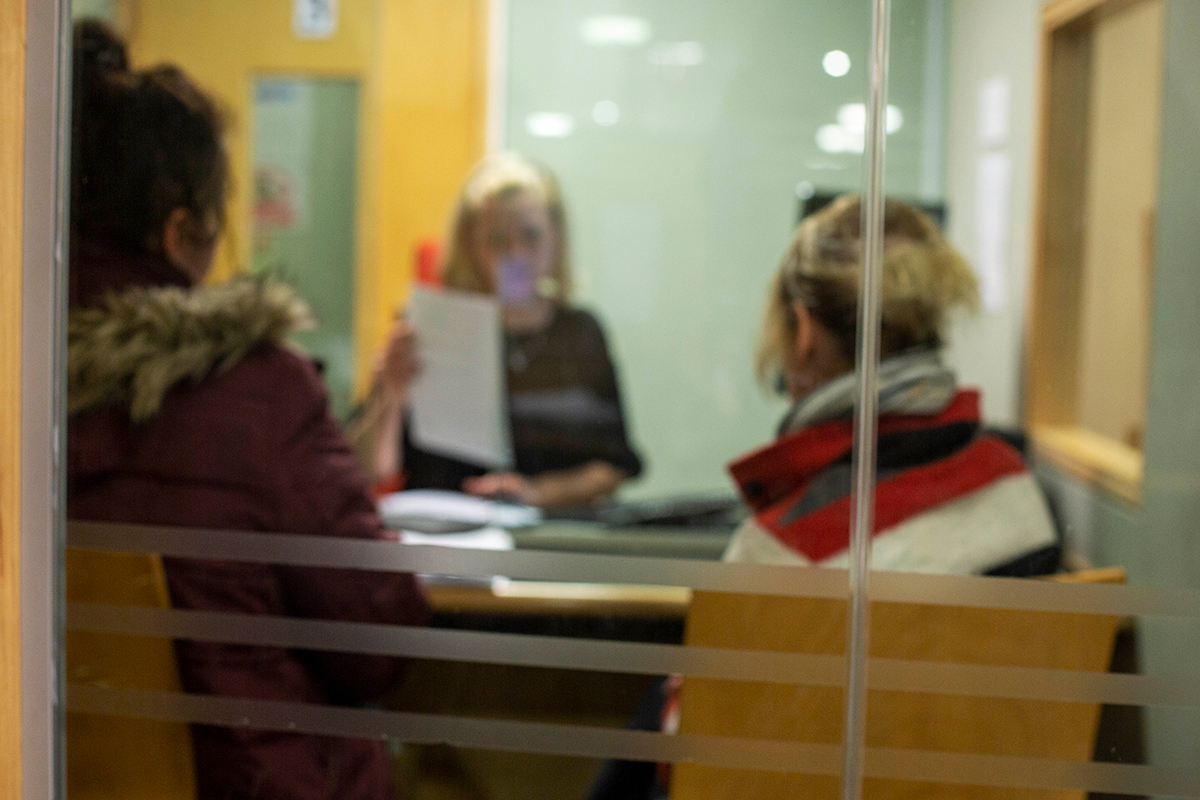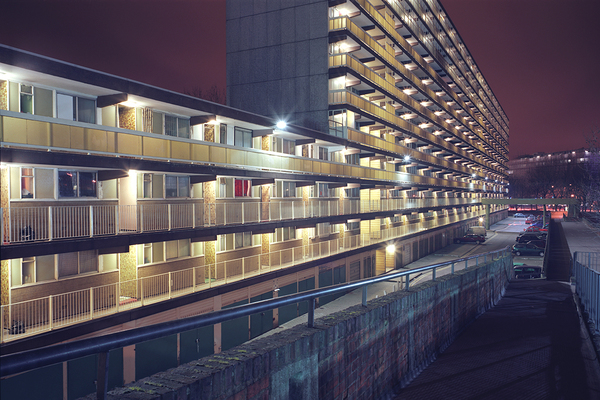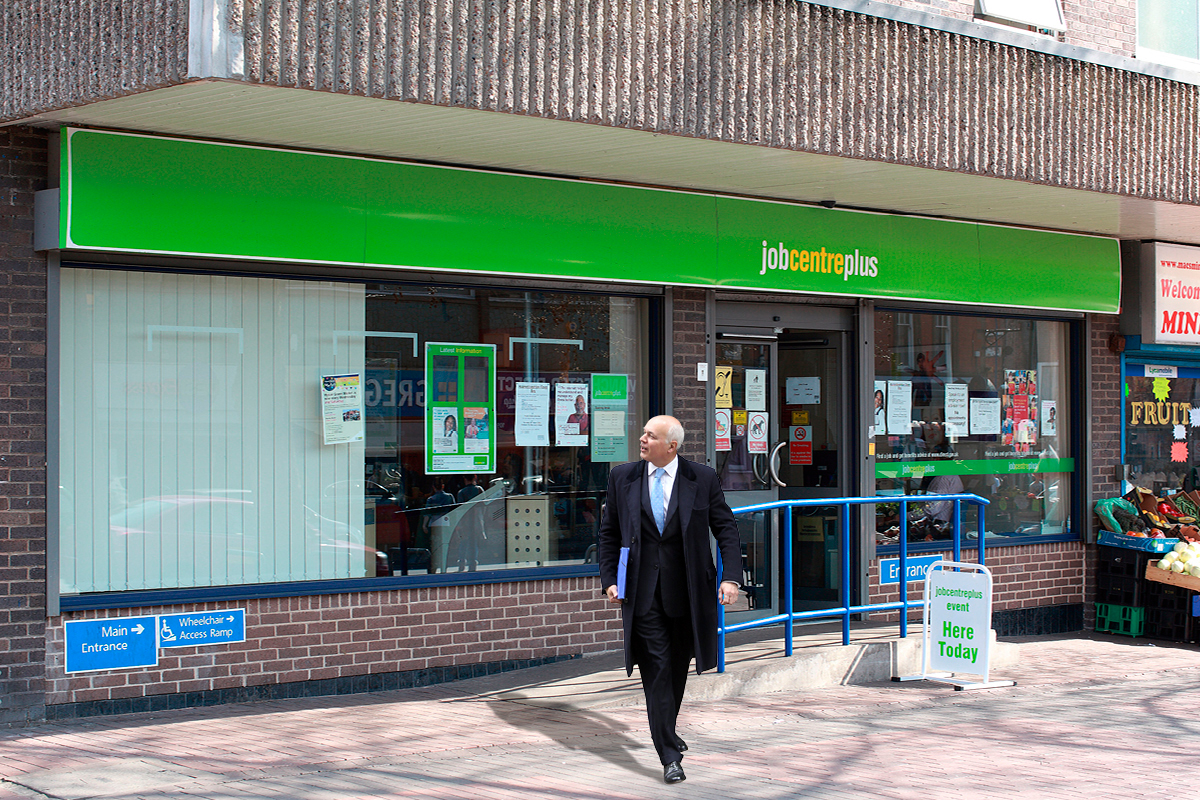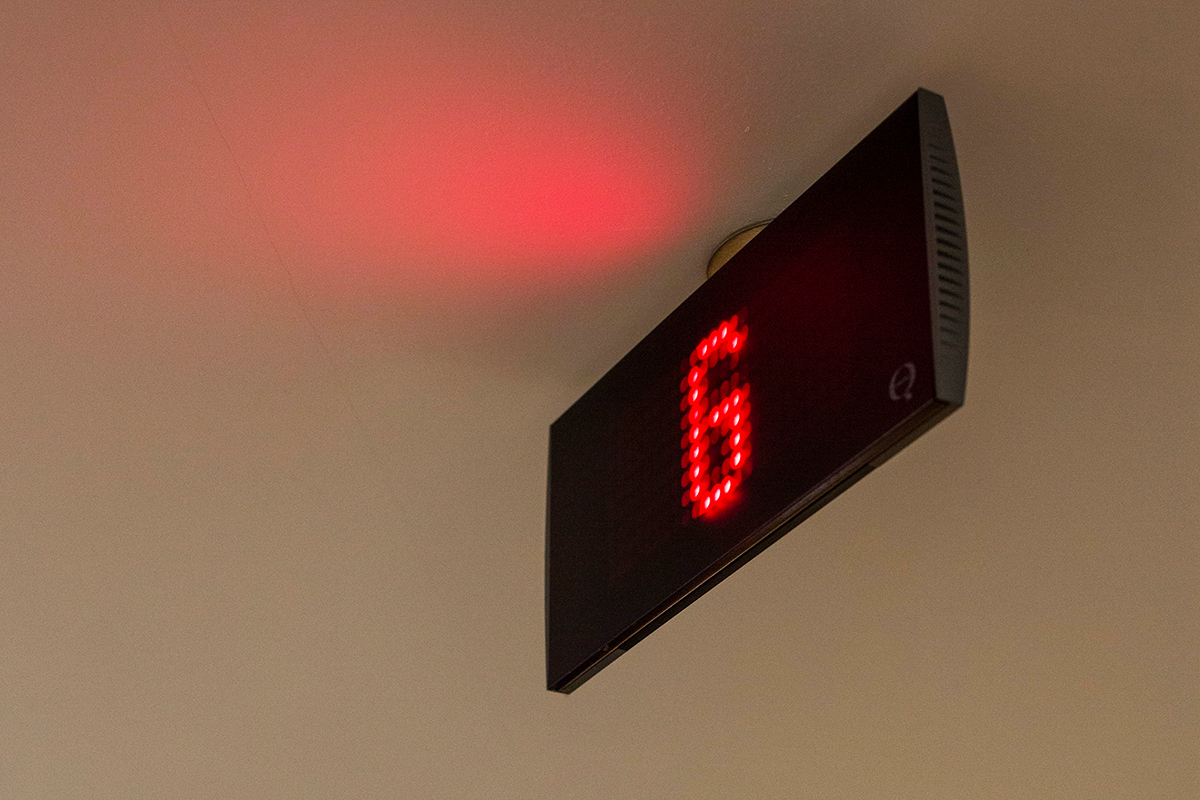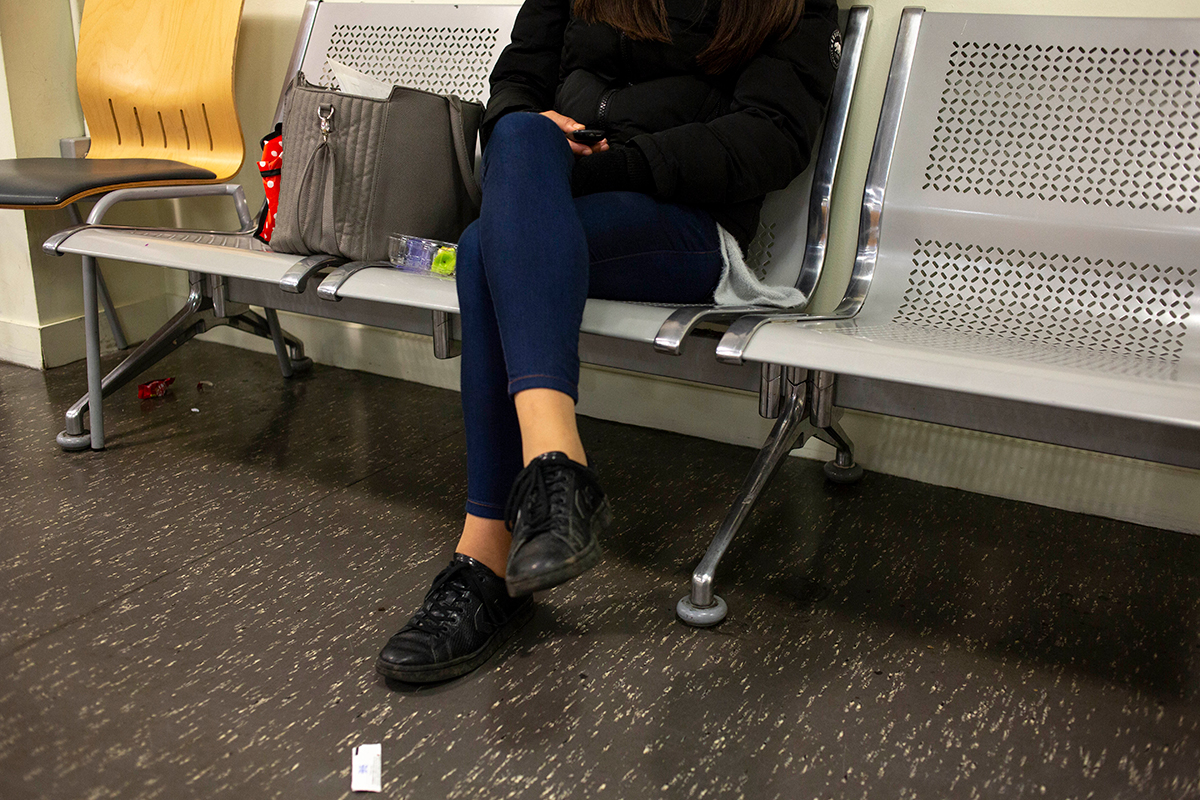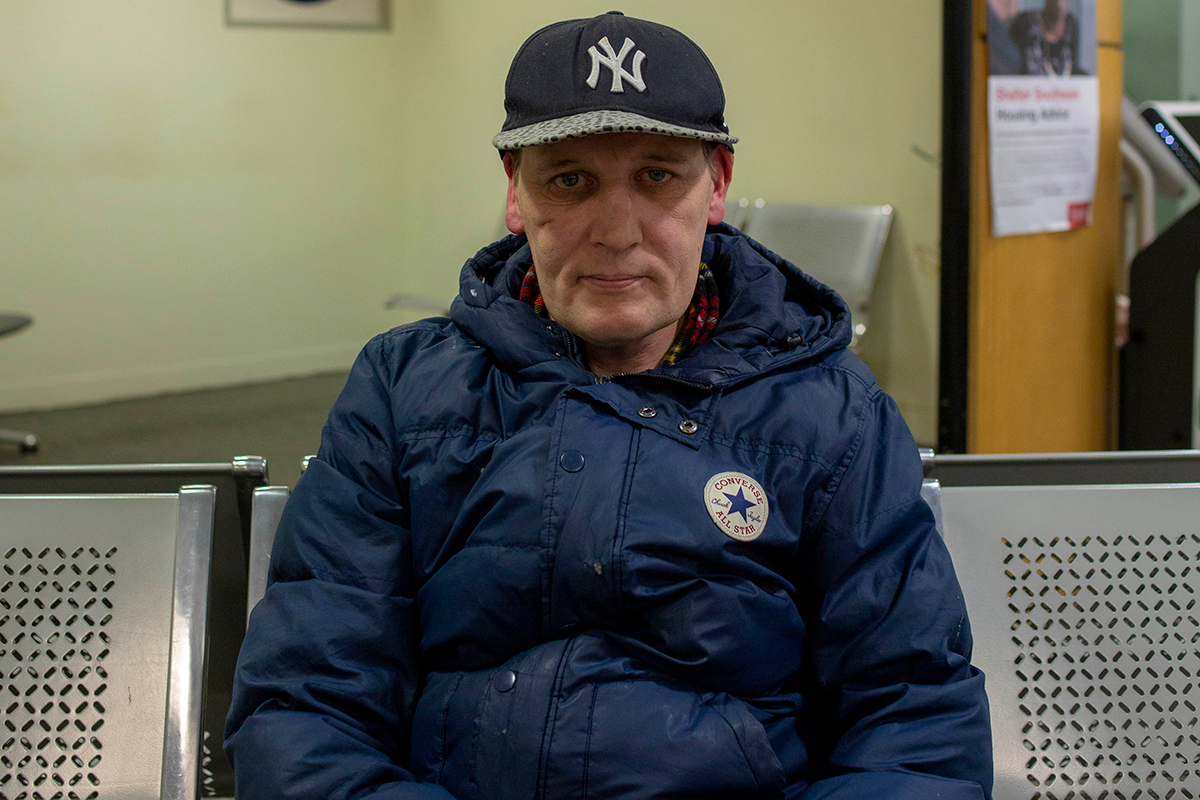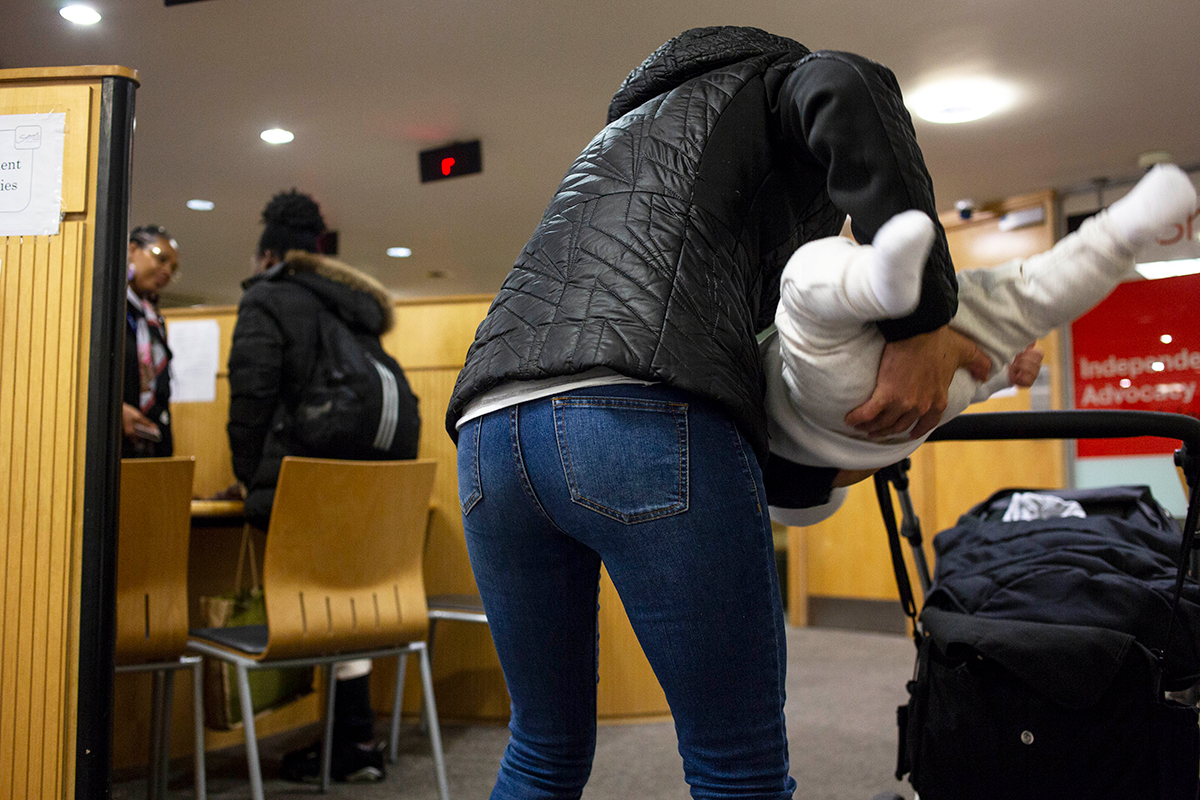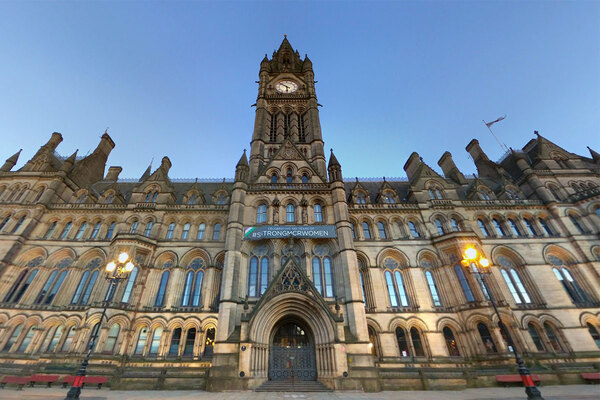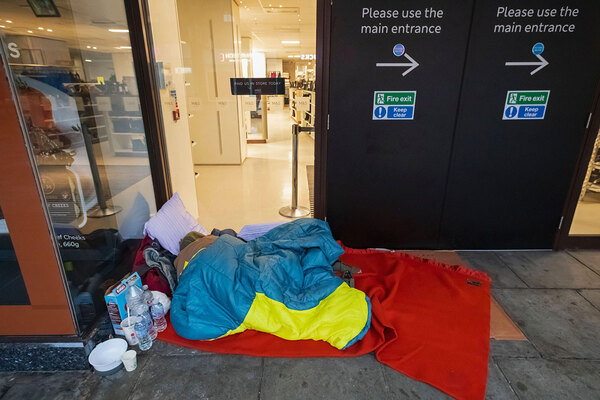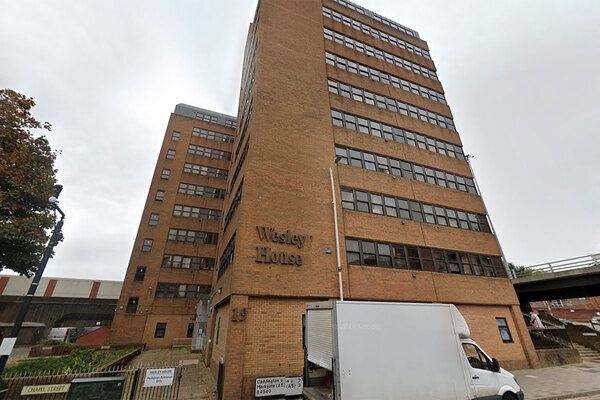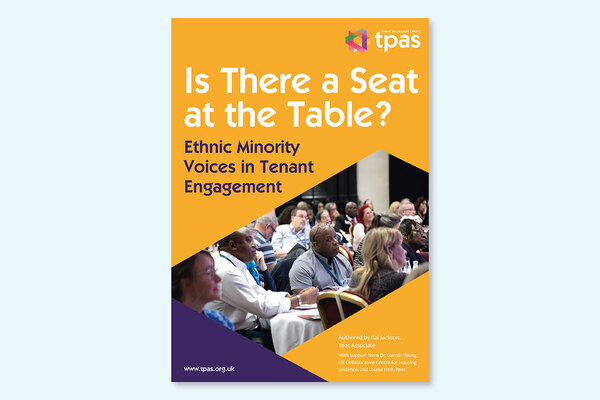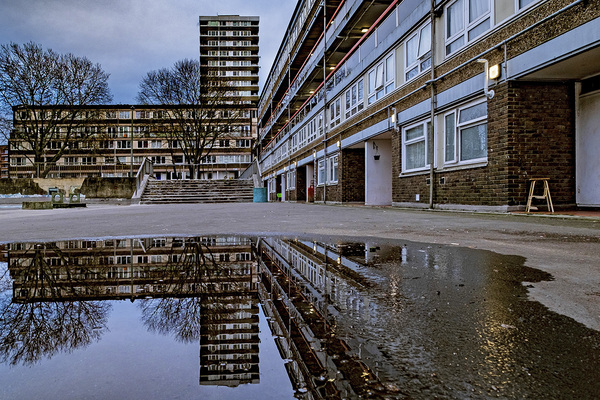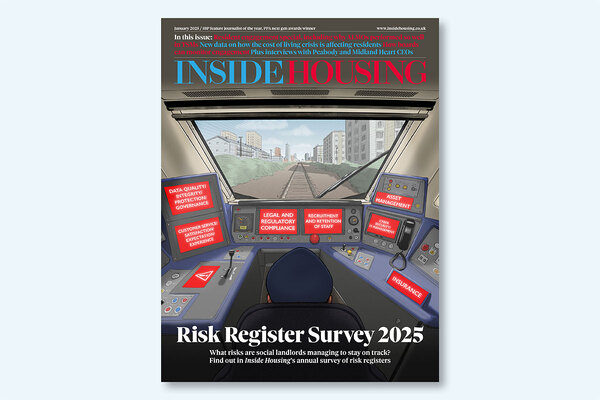You are viewing 1 of your 1 free articles
A rock and a hard place: the Universal Credit frontline
Universal Credit was meant to simplify the welfare system and give people control over their finances. But in one London borough,Gavriel Hollander finds the reality is very different. Photography by Tim Foster
“No one has to wait for money if they need it,” Theresa May told the House of Commons at last week’s Prime Minister’s Questions, when Jeremy Corbyn quizzed her about Universal Credit.
The Labour leader was quoting a Trussell Trust report from earlier in the autumn that claims the effective five-week wait for payment of Universal Credit is leading to increased levels of debt, with many claimants experiencing housing difficulties.
Four miles to the south-east of Westminster, staff working at Southwark Council’s homelessness and housing options service recognise the charity’s assessment of the situation far more than that of the prime minister’s.
Inside Housing is here – on a quiet side street off the chaotic melee of Peckham’s Rye Lane – exactly three weeks before Christmas to witness first hand the impact of the government’s flagship welfare reform policy.
The contrast to Ms May’s optimistic message could not be starker. The service deals with up to 150 people every day, many of whom are on Universal Credit, and many of whom are struggling to make ends meet.
“Since Universal Credit came in we’ve had a rush of people come here because people weren’t aware of the transition from housing benefit,” says Nathan Angol, a gateway customer service officer working on one of half a dozen triage desks at the centre. “Most people who are on these sorts of benefits have some form of vulnerability so they need support.”
Southwark is an ideal place to assess the effect of Universal Credit, the controversial system under which six benefits – including housing benefit – are rolled into one and paid direct to claimants.
The south London borough was one of the first in which the Department for Work and Pensions (DWP) began rolling out the scheme in 2015. With 37,000 homes, it is also one of the largest stock-retaining councils in the UK.
Last month, the council published its second report, produced together with the Smith Institute, looking at its tenants’ rent payment behaviour as they transition onto Universal Credit.
Researchers found that tenants were falling increasingly into arrears as time passed, and that those who had made multiple claims due to changing work circumstances were likely to find themselves even more in debt. The researchers’ analysis of Southwark’s rent accounts also found that overall arrears under Universal Credit are significantly higher than they were under the previous housing benefit system.
But away from the numbers, what does the move to Universal Credit mean for those who claim it, and for council workers struggling to help those who fall between the cracks of the new system?
Every resident who comes to the Peckham service is triaged so that officers can assess their needs. They are then advised what specific services they might need and the council decides whether they are accepted as homeless. The wait on the rows of grey metal bucket seats bolted to the floor can go on, in some cases, for hours.
Daniel Ferlance, the housing solutions manager, tells Inside Housing that around 40% of the 22,000 people who come to the centre annually are accepted as homeless. Recently, what he describes as “a large proportion” of these have been Universal Credit recipients.
The delays that Ms May insists are not a factor are a major source of financial hardship, according to Mr Ferlance and his colleagues. He points out that switching from fortnightly housing benefit payments to monthly Universal Credit payments can leave claimants waiting for several weeks with little or no money.
“It was almost like a frenzy of people in a situation they weren’t in before, and it couldn’t be rectified easily," Davinia Alexander, Southwark Council
The government has taken steps to address this problem by allowing housing benefit to run on for two weeks after a Universal Credit claim is made. But Davinia Alexander, a financial inclusion officer for the council, says the damage for claimants already on the new system has been done.
“Initially, that delay meant that we were faced with a huge amount of clients who had rent arrears from the off,” she explains. “It means [tenants are in] a much more dire situation. It’s not fear of rent arrears, it’s a case of ‘I am in rent arrears and what can I do?’
“It was almost like a frenzy of people in a situation they weren’t in before, and it couldn’t be rectified easily.”
One alarming measure of the situation in Southwark is the council’s increasing use of Discretionary Housing Payments (DHPs), which can be given to tenants struggling to pay rent.
In 2017/18, the council spent nearly all of its £1.2m DHP allocation from the government, with nearly 1,200 of its 1,800 applications receiving money. It is on track to exceed its £1.3m allocation for the current year, having already handled more than 1,200 applications.
Stephanie Cryan, Southwark’s cabinet member for housing management and modernisation, tells Inside Housing that “the majority” of DHPs are used to pay for deposits in the private rented sector, but warns that the cupboard is almost bare.
“We will run out of that before April,” she states. “There will be a few months where we will have no DHP money left because demand is increasing. We want to keep people in their homes but it’s getting harder and harder.”
The council insists that it will not evict anyone who is in arrears directly as a result of Universal Credit, but it has no control over private landlords. Ms Cryan claims that only about one in four of these in the borough now take on tenants claiming benefits, while there has been what she describes as “a huge increase” in Section 21 – or so-called ‘no fault’ – evictions. She says there has been more than 250 of these in Southwark already in this financial year.
All of this is having a financial impact on the council itself.
Southwark has called on the government to freeze the roll-out of Universal Credit to its residents, but the strain is already telling.
“It’s adding costs onto the council not just because of the arrears,” Ms Cryan continues. “It’s also [about] other services that might be used: mental health and well-being, adult care services. There are knock-on effects for the local authority, not just because of the rent.”
The Smith Institute report found that arrears could cost the council £6m a year once all claimants are on the system. That’s a not-insignificant amount for a local authority under pressure.
One route available for the council to cut its losses is to apply for arrears payments through the alternative payment arrangements (APAs) regime. This mechanism allows landlords to deduct up to 20% of a tenant’s Universal Credit payment to repay arrears.
Lee Richardson waits at the service for a friend to finish a consultation
While these are supposed to be for exceptional cases, Dominic Cain, Southwark’s director of exchequer, says that 40% of the council’s tenants claiming Universal Credit requested one in the first six months of the year, up from 12% when the first Safe as Houses report came out last year. This creates a dilemma for the council.
“If we see someone that’s particularly vulnerable, we have a decision to make,” he says. “We’ve got a duty to collect the rent, but at the same time we’ve got a duty to our tenants. So do we apply for the additional 20% or do we look at different alternative ways of working with that tenant to look for a repayment of arrears? It’s a difficult call to make.”
Mr Cain is one of a number of Southwark staff dealing with Universal Credit who cites poor communication with the DWP as a source of frustration, particularly when it comes to sharing information about which of the council’s tenants have migrated from housing benefit.
“We’ve got a duty to collect the rent, but at the same time we’ve got a duty to our tenants" Dominic Cain, Southwark Council
“From an officer perspective we need a greater access to information. There needs to be a review of operations and management at DWP.”
It isn’t just rent arrears that are a problem, of course. For those who do manage to make their rent payments on Universal Credit, it can take a while before it’s obvious what else is being sacrificed.
Southwark’s local support team works with residents to help them manage their finances and offers support to those who need it.
Isabelle Dillon, one of the team leaders, says the council’s hardship fund, which was originally designed for people in debt with a disabled person in the household, is increasingly being used to help Universal Credit claimants waiting for their first payment or who have had deductions taken.
“We’ve been using our discretion on it for the last 18 months once we noticed the applications from Universal Credit claimants was increasingly so dramatically.
Residents can wait for hours, with up to 150 people seen in a day
“Because the wait for Universal Credit is so long, people might need several weeks’ worth of support from us, with food, fuel vouchers and help with toiletries.
“Before, people might have a small crisis but it wouldn’t last that long. If you had a problem with one benefit at least you’d have the others to rely on.”
The team has handled nearly 400 applications for the hardship fund since the start of the financial year in April, the same number it handled in the whole of the previous year. Spending on the fund has already outstripped last year.
Ms Dillon says people are being “set up to fail” by the system, even if the government rhetoric around Universal Credit is that it empowers claimants by giving them control over their finances.
To illustrate the point, her colleague Michelle Bonucci Della Feuillade tells the story of a woman who called the team on Christmas Eve last year, asking for help after she waited seven weeks for a Universal Credit payment and spent it in a matter of days on presents for her children.
The team has handled nearly 400 applications for the hardship fund since the start of the financial year in April, the same number it handled in the whole of the previous year
“She said: ‘What do I do? I’ve got three kids. Do I not give them a Christmas?’”
The DWP says it is "listening to the real concerns some people have with the system" but insists Universal credit is a "force for good".
Back at the housing options service in Peckham, Lee Richardson is patiently waiting for his friend to emerge from her consultation. She is fleeing a violent relationship in Ireland but, without a UK bank account, her Universal Credit payments have been going to her cousin who, Mr Richardson says, is a drug addict.
“It’s setting people up to become homeless,” he says when asked what he thinks of the new system. “For a lot of people it’s hard to be responsible for themselves. They get all the money and they feel rich, but it’s not really their money; it’s to pay the bills, to pay the rent.”
The government had hoped Universal Credit would make benefit claimants financially independent. But in Southwark at least, the evidence suggests more and more people are relying on the council to save them from a miserable Christmas.
Safe as houses?
The Safe as Houses 2 report (see link below) , produced for Southwark Council by the Smith institute, anslysed rent accounts for more than 1,000 tenants who have moved to Universal Credit in either 2016 or 2017.
It found a number of alarming trends when it came to rent arrears, which tended to be higher for the 2017 group than 2016.
Each person in the 2016 group of claimants was accruing on average £1.05 a day in arrears, while the 2017 group accrued £1.57 on average.
While the report found that arrears began to stabilise over the first 40 weeks a tenant was on Universal Credit, they then rose again for the next 30 weeks, suggesting claimants are struggling to meet rent payments long term.
